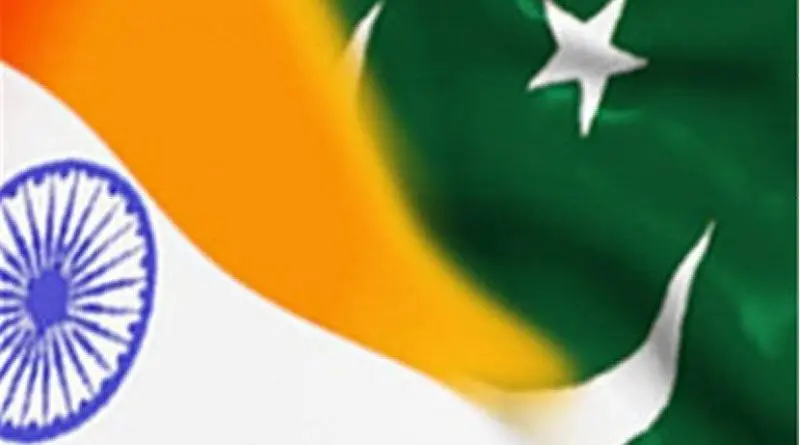India’s 5th Generation Warfare Against Pakistan – OpEd
By Sher Bano*
5th generation warfare or hybrid warfare could be defined as a new advancement in the modern warfare where cultural war gains or information are considered more important than use of hard power in battle field during 3rd or 4th generation warfare. But India is using 5th generation warfare against Pakistan to germinate seeds of hate and spread false propaganda in order to hamper Pakistan’s road towards prosperity. In its attempt to destabilize some domains in Pakistan, India has been using all elements of its national power. As per the statement by DG ISPR, in order to thwart this two pronged conspiracy of Indian state, Pakistan army has been fully prepared.
As its attempt to destabilize Pakistan, India has been targeting certain domains in Pakistan such as information systems, international image, economy and armed forces. Hybrid warfare includes the mix of both kinetic and non-kinetic options to be used against a state in order to attain their strategic interests. Hybrid tactics includes the use of various tools such as disinformation, misinformation and support of proxy militias, cyber-attacks, law fare and propaganda. The report by the EU DisinfoLab last year is the recent example where India’s disinformation campaign against Pakistan was exposed. The objective of the campaign was to influence the international bodies such as European Parliament and UNHRC ‘United Nations Human Rights Council’ against Pakistan by spreading false information through the fake news media network to real media houses and news channels. It also revealed the employment of nearly 10 ghost NGO’s and 15 fake media outlets by the Indian based Srivastav Group. Such revelations by the EU DisinfoLab revealed that India is not completely victorious in its hybrid war against Pakistan.
India has also been making several attempts in order to sabotage the “CPEC” (Pakistan China Economic Corridor) project. India is fully aware that CPEC is going to be the game changer in the region as it offers connectivity to the whole region that will make Pakistan a connectivity hub. Therefore India has been making several attempts such as increased terrorist activities around the CPEC to halt the project. DG ISPR also pointed out various security threats around the project by stating that ‘India is trying to target Pakistan’s international image by using terrorist activities around the CPEC’. But, due to the timely measures taken by the Pakistan army, India’s attempts to retard the project have been in vain. Similarly it was the result of Indian lobbying in the “FATF” (Financial Action Task Force) that Pakistan was added in the grey list. India successfully politicized the FATF by using its bilateral relations and as a result Pakistan was included in grey list even under the caretaker government. The FATF otherwise would have waited for the elections before discussing the roadmap with the new government of Pakistan. This makes it quite evident how India is deftly playing its game against Pakistan from all fronts. Moreover, Pakistan has always tried to resolve the issue of Jammu and Kashmir through bilateral talks but India always comes up with its false narrative of terrorism due to which the talks could not happen.
The best way for Pakistan to counter the disinformation campaign of India is transparency. The best way is to spread the credible information and not to leaving any information void. There is a need to truly understand the nature of hybrid war unleashed against Pakistan by developing integrated organizational structures and foster a synergic and cohesive response. There is a need to adapt offensive and defensive posture vis-à-vis India’s hybrid warfare and also make the immune system (social contract between citizens and state) of country resilient and strong. Across the entire political spectrum, there is a need to build a common understanding regarding threat and response. It is necessary that through creative approaches in information and diplomacy the real face of India be continuously revealed to the whole world. Expand the capacity of Pakistani media by providing them considerable resources to counter the negative propaganda being spread by the India. There is a need to develop credible clusters in the society that could be trusted for credible source of information. More counter-intelligence operations must be conducted in order to expose Indian actions as exposed by EU DisinfoLab.
With the emerging complex and volatile strategic environment within South Asia, specifically India’s 5th generation warfare against Pakistan, it has also become necessary for Pakistan to modernize its weapon systems and armed forces. But undoubtedly to project Pakistan’s narrative on the both international and national front, the information domain has become very significant. The 5th generation warfare is a double edged sword that needs to be tackled by forming a well calibrated national response that is backed with well-defined foreign policy.
*The writer is working as a Research Affiliate at the Strategic Vision Institute (SVI), a non-partisan think-tank based out of Islamabad, Pakistan.

